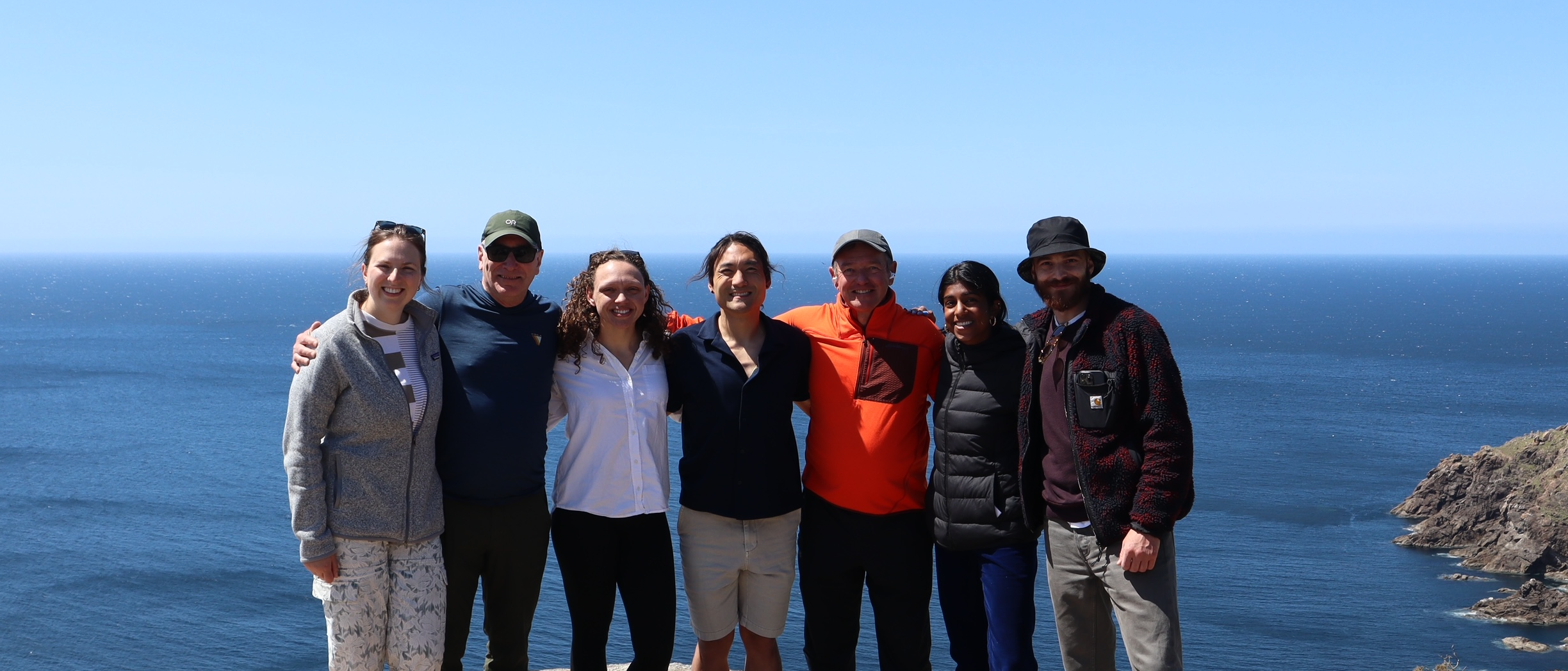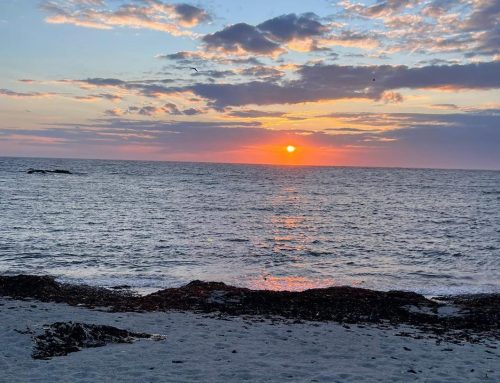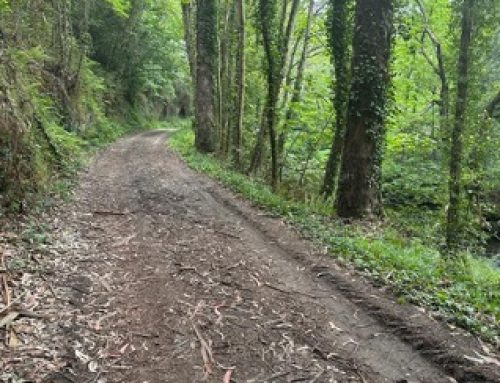Over the last several years a small group of medical students from the University of Rochester have participated as subjects in a documentary film about their experiences over the first formative steps toward becoming physicians. As part of the film, they have engaged in extensive reflections during these early stages of their long journey of medical training, from the day they began as first year medical students until their graduation. They have spoken about their educational experiences and their impact while being filmed in, among other settings, the classroom, the clinic, the surgical theater, and the hospital wards.
As part of their reflections, shortly before graduation they participated in a course called Professional Reflections on a Pilgrimage: The Camino de Santiago de Compostela and the Future in Medicine, walking 140 km in Northwest Spain. While on that walk they carried with them the words of Antonio Machado, an early 20th century Spanish poet describing the Camino, and they engaged in daily reflections, looking back through over the arc of the educational experiences that had unfolded for them. They conversed about the beginnings of their medical training, the challenges of learning the intricacies of the human body, the at times overwhelming process of acquisition and mastery of medical information, the unpredictable and fraught process of assessment, their own sense of vocation and calling, the reality of the uncertainty experienced at many levels in medicine, and finally of their own future as physicians:
Caminante, son tus huellas
el camino, y nada más;
caminante, no hay camino,
se hace camino al andar.
Al andar se hace camino,…
Traveler, your footsteps are
the road and nothing else;
Traveler, there is no path,
the path is made by walking.
By walking the path is made,…1
Dr. Lisa Rosenbaum, in a recent essay about the nature of calling in medicine, raised concerns about trends reported among some younger physicians as she inquired about medicine as a calling or simply a job.2 To illustrate a point In that essay questioning calling as a primary motivator, she shared a story about a colleague’s grandfather who, while he was working in a power plant, risked life and limb to save another co-worker “because there was a human in need.” While true that many would respond similarly and not out of a sense of calling, I believe a career in medicine has always asked more. Whereas Dr. Rosenbaum focused on the question of calling itself, and how past, current, and future colleagues think about their work within the larger context of their lives, I see a slightly different yet equally valid question. I wonder, particularly through the experience of watching these medical students’ nascent professional identities develop, not about whether they are “called” to medicine, but rather how that calling expresses itself in the ever-changing world of medicine?
Despite the multitude of external forces that erode physicians’ collective sense of efficacy and add to their collective moral injury in caring for the ill and the vulnerable within the imperfect systems and culture of medicine, humans remain quite vulnerable social beings. Our biology, physiology, neurology, and psychology have evolved for us to care for one another, motivating some members of our species to devote their energies and lives toward providing that care, that is so often quite complex, uncertain, and difficult. These dynamics over eons have resulted in genetic and epigenetic changes that have translated into some devoting much of their available physical, emotional, and intellectual resources toward a professional life whose focus is specifically the caring for others. Distinct among those caregivers are physicians.
Connecting the long journey to becoming a physician with the Camino experience these students had, we can view early medical training as a pilgrimage metaphorically in the way they have reflected on their journey and have returned to the calling that inspired them to begin with those first steps. Additionally, medical educators have an important role in recognizing medical students’ individual and collective journeys, and nurture (not ignore or squash) their passion for human caregiving. This film project and the pilgrimage documented therein was conceived to explore those impulses for caregiving and how they are shaped by their early professional training. Viewing this journey through the eyes of these students can inspire us to reflect on each of our individual journeys as caregivers, teachers, and human beings, and perhaps also reflect on and act toward creating a culture that better supports the goals of medicine and caregiving.
On the last day of the Camino the students rested at Cape Finisterre, a place that for pilgrims in the medieval psyche represented literally the edge of the world. They gazed out over the Atlantic ocean and the western horizon, the distant North American continent beckoning them toward their futures, just a few short weeks before receiving their Doctor of Medicine degrees. There they paused on their journeys with the knowledge that the next steps, although partially known, remain in many ways undefined and uncertain. Each medical student shared a 55-word (+/-) reflection they wrote after studying the ancient and modern versions of the Hippocratic oath. Fifty-five-word stories are brief pieces of creative writing that use elements of poetry, prose, or both to encapsulate key experiences in health care.3 Reflective practices like this connect students to their own core values as both human beings and as developing professionals.4 Their words are as follows:
Medical Student:
dear patient,
i know not what ails you
share your journey with me
and I will keep your secrets safe
dear teacher,
i have so much yet to learn
show me the ways of your world
dear fellow human,
i know not what your future holds
but I promise to walk this
path with you
Medical Student:
Finisterre
To approach every day
with humility
to be bold in what I don’t know
To be moved- to
stay open- to hold
space for the art
while furthering the science
To never lose sight
of the beauty-
to celebrate and love
and respect the
many varieties of a beautiful life
Medical Student:
Nourishment, with its physical and spiritual forms
Space when needed and closeness when comfortable
The sun rising and setting, the passing of
moments of hardship and joy
True rest and the peace it brings
Slowing down the machines within us in the
presence of the machine around us
Continuing the journey with our only
requirement, to embrace existence
Medical Student:
A daily devotion to protect and nourish
my spirit, my wellspring of curiosity,
kindness, and service. To honor a sacred
trust, a humanity shared. In humility, I listen
-learning from every story, every sorrow.
Guided by the past, walking alongside fellow
healers, I strive to heal, teach, and grow,
together – our collective path of medicine.
We can rest assured that the lineage of healership and caregiving will continue just as it has since humans gathered in groups and took care of each other. Although the future world of medicine will look different than the current world we inhabit, there will remain many from that world, talented, creative, committed, and resourceful members of their communities, who will be called to take up the long art of becoming and living as a physician.
- Machado, Antonio: Proverbs and Song-Verse XXIX (Proverbios y cantares XXIX ) in Fields of Castille/Campos de Castilla, 2007, Mineola, New York, Dover Publications Inc.
- Rosenbaum L. On calling-from privileged professionals to cogs of capitalism. New England Journal of Medicine. 2024; 390(5): 471-5.
- Fogarty CT. Fifty-five word stories: “small jewels” for personal reflection and teaching. Fam Med. 2010 Jun;42(6):400-2. PMID: 20526906.
- Gaufberg E, Batalden M. The professional oath: pledge of allegiance or reflective practice? Med Educ. 2014 Jan;48(1):9-11. doi: 10.1111/medu.12373. PMID: 24330110.






Leave A Comment